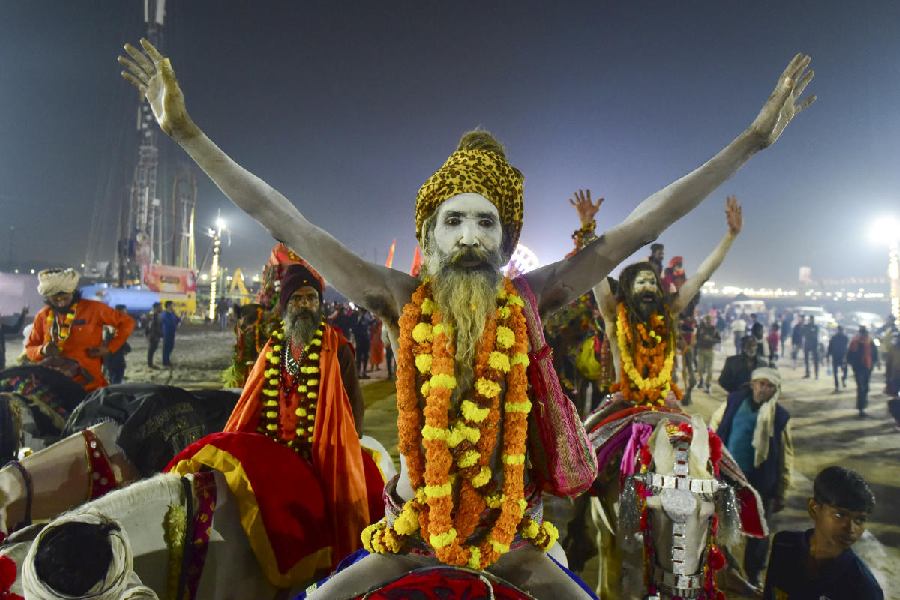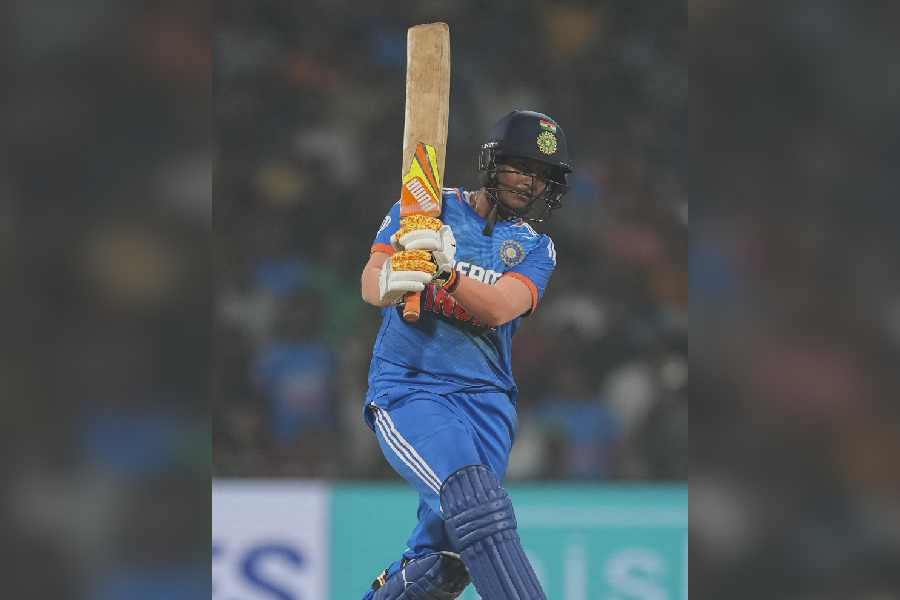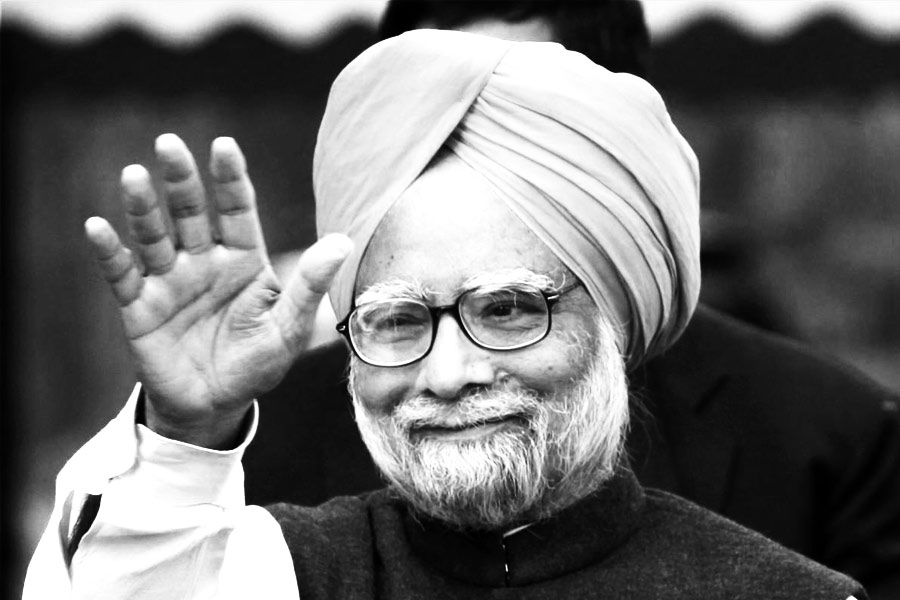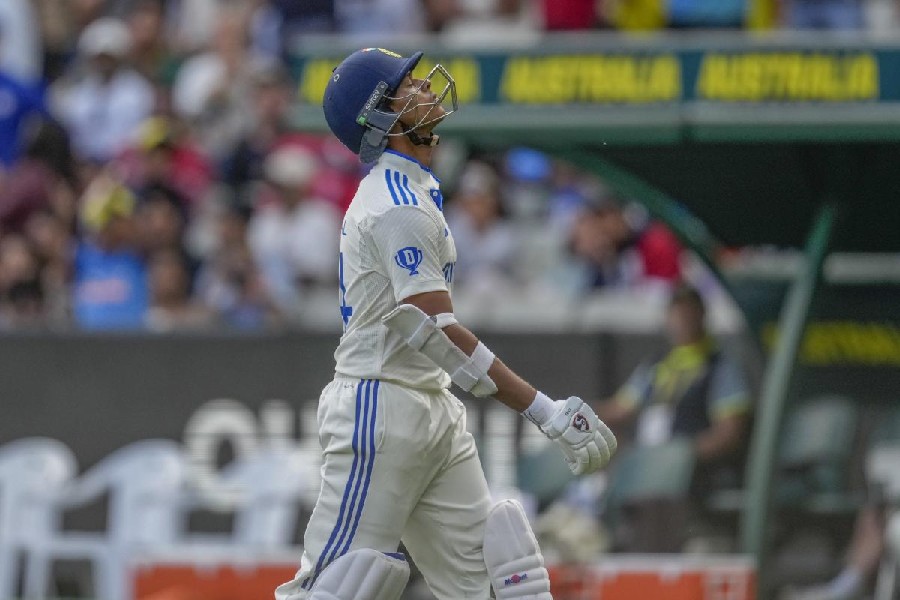Mamata Banerjee on Monday presided over the Trinamool Congress’s national executive committee meeting, during which several new panels were formed and decisions on the party’s next course of action at the state and national levels were finalised.
Multiple sources in the party said that the timing of the meeting and the decisions were significant as they unequivocally reaffirmed Mamata as the sole decision-maker in the TMC.
“If you look at the names of the members on the new committees, you’ll find that most of them are from the old guard and considered close aides to Didi.... Her preference has prevailed and the message is loud and clear that she remains the driving force both in the party and the government,” said a senior Trinamool leader.
Mamata’s reassertion as the party’s “last word” became significant amid recent reports of distance between the chief minister and her nephew Abhishek Banerjee over some organisational changes.
In the past few years, the party’s rank and file, including MLAs and MPs, have increasingly split into two factions: one loyal to Mamata and another perceived toalign with her heir apparent, Abhishek.
The latest tensions between Harish Chatterjee Street and Camac Street purportedly began around the junior doctor’s rape and murder at RG Kar Medical College and Hospital in August. Trinamool workers observed that Abhishek and his followers were less active in defending the party during the crisis. The rift became more apparent when he did not participate in a march led by Mamata, demanding prompt capital punishment for the RG Kar case’s perpetrator.
“After that phase, Abhishek went abroad for medical treatment. While there were indications of reconciliation, recent organisational changes suggest that the differences remain unresolved,” a party source revealed.
Some TMC leaders noted that Mamata had used similar strategies at least thrice in the past three years when such internal rifts had emerged, sending a clear message to party members that she remained indispensable.
“There may be occasional differences of opinion between the top two leaders regarding organisational matters, but these differences typically dissolve as elections approach or when the party faces significant, external challenges. It remains to be seen how long this current phase of discord lasts,” said a TMC insider.
Mamata included MPs Kalyan Banerjee, Mala Roy, Assembly Speaker Biman Banerjee, ministers Manas Bhuniya and Javed Khan as new members of its national executive committee. All of them are seen as part of her loyal inner circle.
Additionally, she formed three disciplinary committees, most of whose members were her loyalists. Abhishek, the party’s national general secretary, was not part of any of the three panels, even the one focused on parliamentary matters. The Diamond Harbour MP was made one of the party’s nationalspokespersons.
Another TMC insider said the formation of the three separate disciplinary committees was significant, as Mamata expressed dissatisfaction with comments made by certain party leaders, which caused embarrassment to the ruling dispensation.
“She instructed that showcauses be issued to any leader who makes controversial remarks or speaks against the party line. If it happens three times, the individual will face suspension,” a TMC leader said, referring to a recent incident where an MLA publicly suggested that Abhishek should be the deputy chief minister.
Finance minister Chandrima Bhattacharya, who briefed journalists on the meeting, emphasised that Trinamool would organise programmes to educate younger members about the TMC’s history and Mamata’s role in it.
“TMC’s history did not begin in 1998 with its inception. Our leader Mamata Banerjee endured decades of political struggle to build the party into what it is today. The new generations of members must understand this legacy,” Bhattacharya said.
A senior leader suggested that the programme to educate party members about the TMC’s history also served to reinforce Mamata’s position as the party’s central figure during this period of internal tension.
Mamata also outlined a series of political programmes for the party in Bengal and provided clear directives for her MPs on which issues to prioritise in Parliament. This further indicated her hands-on approach to managing both state and national affairs.
“Although Abhishek was allowed to speak as one of only three speakers at the meeting, he was subdued. His role in the meeting was limited, and the message was conveyed that he is one among many seniors in the leadership, which finally reports to her. At least for now,” said an MP.











